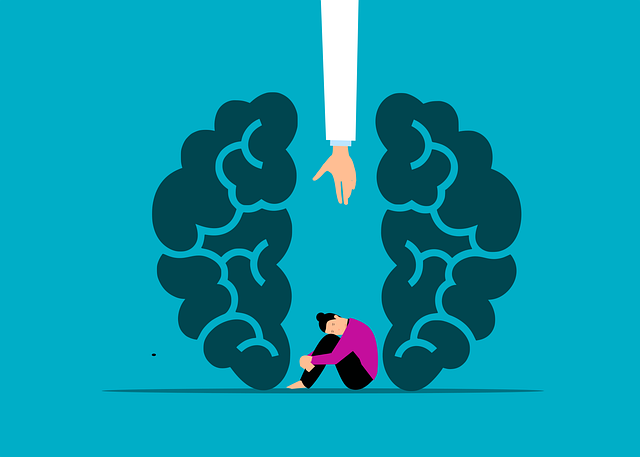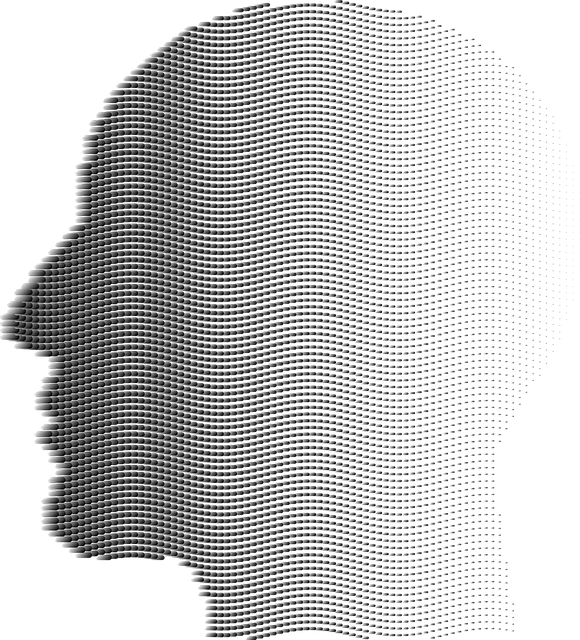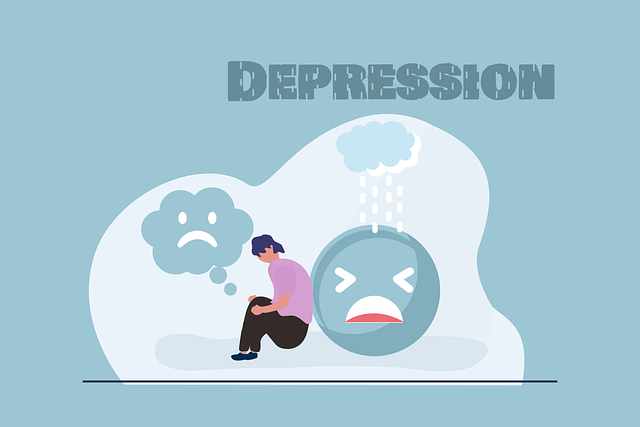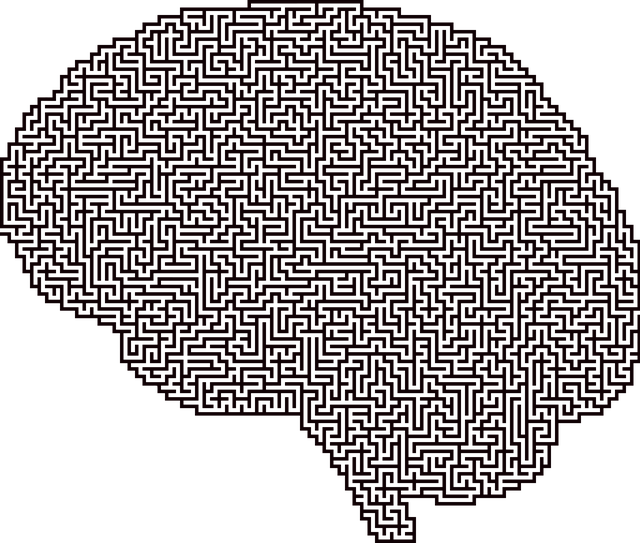Englewood Chronic Illness Therapy tackles mental illness diagnosis complexity through multi-faceted approaches: raising awareness, implementing community outreach, and offering specialized care. Their nuanced strategy includes advanced technologies like AI for accurate diagnoses, comprehensive training for professionals, and digital tools for remote access. By focusing on holistic well-being, depression prevention, and stigma reduction, the center empowers patients to manage mental health and achieves improved outcomes, positioning Englewood as a leading provider in the digital age.
Mental illness diagnosis accuracy is a critical aspect of patient care, impacting treatment outcomes significantly. This article explores efforts to enhance diagnostic precision, focusing on the multifaceted challenges and innovative solutions. We delve into the complexities of mental health assessment, highlighting initiatives like Englewood Chronic Illness Therapy’s specialized approach. Additionally, we discuss cutting-edge training methods and technology’s transformative role in revolutionizing mental health diagnosis, ultimately aiming to improve patient outcomes.
- Understanding the Challenges: Uncovering the Complexities of Mental Illness Diagnosis
- Englewood Chronic Illness Therapy: A Center for Specialized Care
- Innovative Approaches to Enhance Diagnostic Accuracy
- Training and Education: Empowering Professionals for Better Assessment
- The Role of Technology in Revolutionizing Mental Health Diagnosis
Understanding the Challenges: Uncovering the Complexities of Mental Illness Diagnosis

Mental illness diagnosis is a complex process, often shrouded in misconceptions and challenges. The intricate nature of mental health conditions makes accurate identification a daunting task. Symptoms can vary greatly from person to person, even within the same diagnosis, presenting a unique set of obstacles for healthcare professionals at Englewood Chronic Illness Therapy. This complexity arises from the interplay of biological, psychological, and social factors that contribute to mental illness.
Understanding these complexities is crucial. Mental Health Awareness initiatives play a pivotal role in educating both the public and medical communities. By raising awareness, we can dispel myths and promote early intervention. Additionally, Trauma Support Services and Community Outreach Program Implementations are essential strategies to reach underserved populations, ensuring they receive proper diagnosis and treatment. These efforts collectively strive to enhance the accuracy of mental illness diagnoses, ultimately improving patient care and outcomes.
Englewood Chronic Illness Therapy: A Center for Specialized Care

Englewood Chronic Illness Therapy stands as a beacon of hope and specialized care for individuals navigating mental health challenges. This center is uniquely equipped to address complex conditions, offering a comprehensive approach that goes beyond traditional therapy. By prioritizing an individualized treatment plan, Englewood provides a nurturing environment where patients can focus on self-esteem improvement, mood management, and essential social skills training.
The facility’s expertise lies in its holistic understanding of mental illness, recognizing the interconnectedness of physical, emotional, and social well-being. Through tailored interventions, counseling sessions, and support groups, Englewood Chronic Illness Therapy empowers individuals to take control of their lives, fostering resilience and promoting long-term recovery.
Innovative Approaches to Enhance Diagnostic Accuracy

In the pursuit of enhancing mental illness diagnosis accuracy, innovative approaches are reshaping the landscape of Englewood Chronic Illness Therapy. One such strategy involves integrating advanced technologies like artificial intelligence (AI) and machine learning algorithms into diagnostic processes. These tools can analyze vast amounts of patient data, including medical history, genetic information, and behavioral patterns, to identify subtle indicators that may have been previously overlooked. By leveraging these technologies, mental health professionals gain a more nuanced understanding of individual cases, leading to more precise diagnoses.
Additionally, the emphasis on Depression Prevention, Self-Care Routine Development for Better Mental Health, and Emotional Healing Processes plays a pivotal role in improving diagnostic accuracy. Through comprehensive programs that educate individuals on recognizing early warning signs and implementing effective self-care strategies, patients can actively participate in their healing journey. This collaborative approach not only empowers folks to take charge of their mental well-being but also provides therapists with valuable insights into the patient’s emotional landscape, further refining diagnosis and treatment planning.
Training and Education: Empowering Professionals for Better Assessment

Mental health professionals play a pivotal role in accurately diagnosing and treating mental illness. To enhance diagnosis accuracy, there’s a growing emphasis on comprehensive training and education. This includes advanced assessment techniques, ongoing supervision, and regular updates on research findings. By empowering professionals with the latest knowledge and skills, organizations like Englewood Chronic Illness Therapy strive to improve care delivery. Such efforts are crucial in addressing the complexities of mental health conditions, especially when co-occurring or undiagnosed for years.
In this regard, integrating stress reduction methods and trauma support services into training curricula can significantly contribute to better assessment outcomes. Public awareness campaigns development also plays a vital role in breaking down stigma and fostering open conversations about mental illness. This collective approach ensures that professionals are well-equipped to handle the diverse needs of individuals seeking help, ultimately leading to more precise diagnoses and effective treatment plans.
The Role of Technology in Revolutionizing Mental Health Diagnosis

In the digital age, technology is playing a pivotal role in revolutionizing mental health diagnosis and treatment at places like Englewood Chronic Illness Therapy. Online platforms and mobile applications offer accessible tools for individuals to track their symptoms, mood, and behaviors over time, providing valuable data that aids healthcare providers in making more accurate diagnoses. Wearable devices and AI-driven chatbots can also detect subtle changes in language use and sentiment, alerting users and professionals alike to potential mental health concerns early on.
Furthermore, virtual reality (VR) therapy and remote counseling sessions are expanding access to care, especially for individuals who face barriers such as geographical locations or social anxiety. These advancements, coupled with initiatives like Healthcare Provider Cultural Competency Training and Self-Awareness Exercises, aim to improve coping skills development and promote more inclusive mental health practices. By integrating technology into mental healthcare, we are taking significant steps towards enhancing diagnosis accuracy, accessibility, and ultimately, improving patient outcomes.
Mental illness diagnosis accuracy has seen significant advancements through specialized centers like Englewood Chronic Illness Therapy, innovative approaches, and enhanced training. The integration of technology promises to further revolutionize assessment methods, ensuring more precise and timely interventions. By combining expertise, education, and cutting-edge tools, we can improve patient outcomes and navigate the complex landscape of mental health diagnosis with greater confidence and effectiveness.














